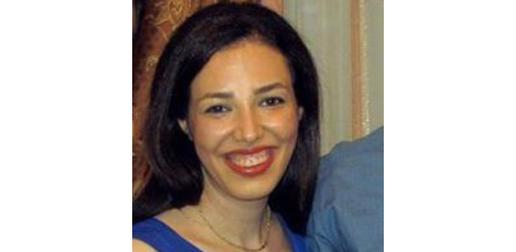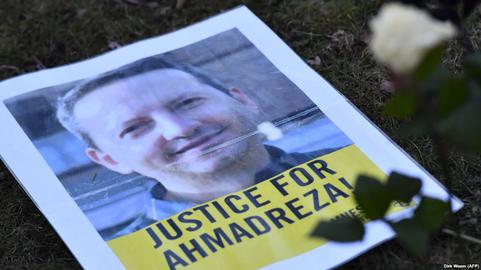On Saturday, December 16, Negin Ghadamian, an Iranian Baha’i and a teacher for the Baha’i Institute for Higher Education (BIHE), was arrested at the airport as she and her husband Pouya Oladi were about to board a plane for Europe. She was taken to prison to serve a five-year sentence that authorities had originally handed down in 2013.
The Baha’i community established the BIHE in 1987 as a peaceful response to the Islamic Republic’s repeated denial of their right to higher education after the 1979 Islamic Revolution. But, far from tolerating the BIHE, since the institute was established, Islamic Republic authorities have harassed, arrested and imprisoned teachers, as well as young Baha’is who pursue higher education.
After years of suffering an ordeal at the hands of the Iranian judiciary, Ghadamian and her husband had decided to take a break and travel to Switzerland. Before they did, they made sure Ghadamian had not been banned from traveling abroad. When they were assured that she was not, they bought their tickets — but she was arrested at the airport in Tabriz, the capital of East Azerbaijan province, and taken to Tehran under guard. Ghadamian had not received a summons to present herself at the prison to start her sentence.
Negin Ghadamian was one of many young Baha’is to be banned from higher education following the 1979 Islamic Revolution. After receiving her high school diploma, she decided to remain in Iran and continue her education with the BIHE. She was in love with Iranian culture and arts, and in 2008 she received her Master’s degree in Iranian literature from the BIHE. She remained with the BIHE and taught Persian literature to other young Baha’is.
On May 22 and May 23 in 2011, security forces from the Intelligence Ministry raided the homes of 39 staff and faculty members of the BIHE and arrested several of them after searching their homes [Persian link]. Negin Ghadamian was one of the arrested. At the time she was still single and lived with her parents. The agents seized her computer, her scientific and religious books and some other personal items and took her to an unknown location for interrogation, after which she was released.
Sign a Pledge or Go to Prison
On March 12, 2013, Ghadamian and nine other Baha’i teachers — Toloue Golkar, Nazanin Nikou-Seresht, Abbas Taef, Azita Rafizadeh, Peyman Kushbaghi, Hasan Momtaz, Nasim Bagheri, Babak Beheshti and Ahmad Golzar — were summoned to the Revolutionary Court at Evin Prison. They were told that in exchange for their freedom, they had to sign a pledge that they would stop working with the BIHE and teaching Baha’i students. Ghadamian and six others refused to sign the pledge and were arrested on the spot. The judge ordered them to pay 50 million tomans, close to $15,000, as bail for release pending their trials.
In 2013, the Revolutionary Court tried and sentenced Ghadamian to five years in prison on charges of “acting against national security through membership to the Baha’i deviant sect” and working with the “illegal” BIHE. She appealed, but in early 2015, before the court of appeals had issued its verdict, agents of the Intelligence Ministry arrived at her workplace and took her to Evin Prison to serve her sentence. Her lawyer, however, managed to secure her release on bail pending a decision by the appeals court.
In early 2017, the Revolutionary Court of appeals upheld the lower court’s sentence of five years in prison for Ghadamian, who is 34 years old.
Ghadamian joins several other BIHE teachers in prison.
In December, following the release of Behrooz Tavakoli and two other Baha’i leaders, hopes were raised that the government would finally usher in changes and improve the situation for Baha’is across the country. The arrest of Ghadamian is certain to lower those expectations.
Despite implied promises by officials from Rouhani’s administration, repression of the Baha’i community in Iran has continued. Baha’is are still banned from higher education and in the 2016-17 academic year alone, at least 129 students were denied access to university courses.
Baha’is continue to be excluded from employment in the public sector and from some professions in the private sector. Authorities regularly seal up Baha’i-owned shops and businesses when their owners temporarily close them to observe Baha’i Holy Days. Over the last few years, hundreds of businesses have been forcibly closed, depriving an income to families that rely on them.
visit the accountability section
In this section of Iran Wire, you can contact the officials and launch your campaign for various problems

























comments